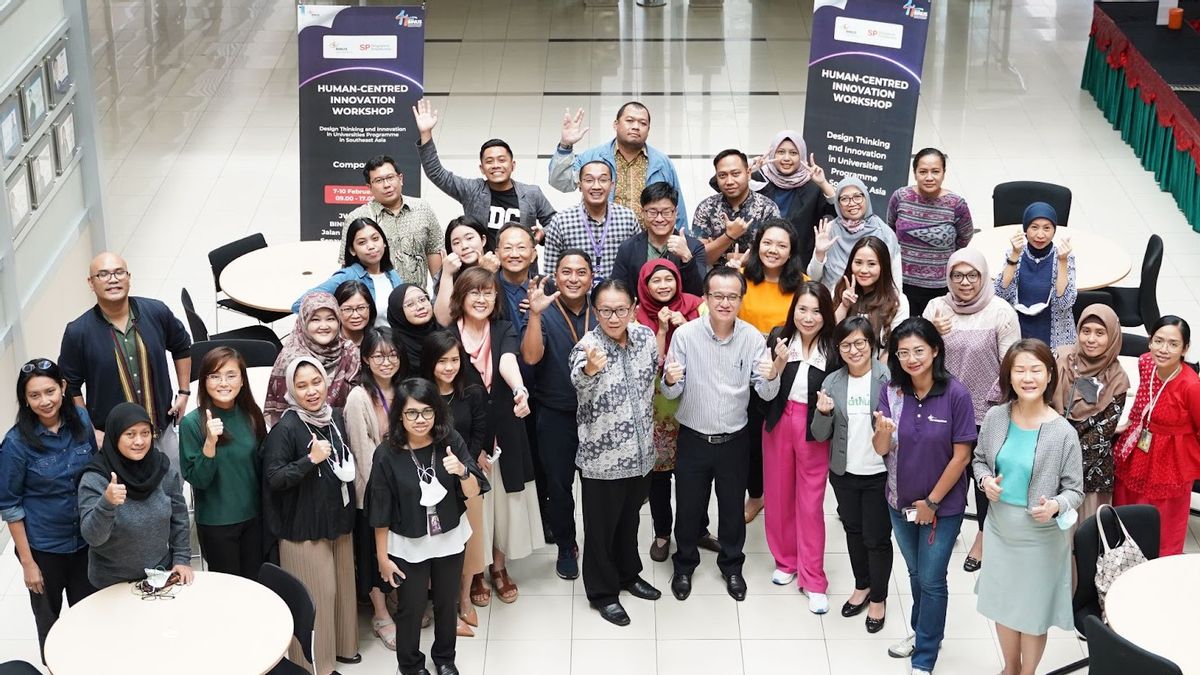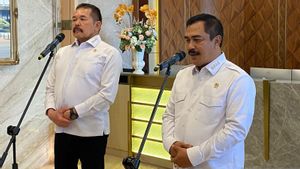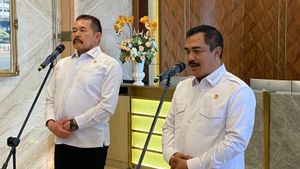JAKARTA - Design thingking is a recurrent process where a person tries to challenge assumptions, understands the user and redefines a problem.
This is done in order to identify alternative strategies and solutions that may indirectly be seen in early-level understanding.
In addition, design thingking can also be a solution-based approach to solving problems, which includes way of thinking and working as well as a collection of direct methods.
Sometimes, it is not uncommon to encounter unclear or even unknown problems that create confusion. In overcoming these problems, design thingsking will be very useful.
Given the importance of design matters, BINUS University together with the King Mongkut Institute of Technology, Ladkrabang in Thailand and Atteneo University in the Philippines, are part of the Regional Conference Thinking/User Experience (DT/UX).
The activity is an initiative organized by Singapore Polytechnic to build an innovation capacity and develop human-centered innovation at a number of universities in ASEAN.
The DT/UX Regional Center will facilitate the development of an ecosystem of innovation capacity and development of human-centered innovation solutions in the Southeast Asia Region.
The collaboratively funded initiative in Indonesia between the Temasek Foundation and BINUS University is in the form of workshops and capacity building lecturers and staff at BINUS about understanding design thinking.
The design thinking approach presented uses a unique method developed by experts at Singapore Polytechnic.
This method was tested through various collaborations carried out by Singapore Polytechnic with industries such as Boeing, P&G, and various other well-known companies.
The Design Thinking and Innovation in Universities Programme in Southeast Asia workshop will be held in Indonesia on February 7 to 10, 2023 at the BINUS International campus, BINUS in Senayan, The Joseph Wibowo Center (JWC) Campus, South Jakarta.
The Workshop Design Thinking and Innovation in Universities Programme in Southeast Asia in Jakarta this time is a follow-up workshop held by Singapore Polytechnic, after previously being held in Singapore in 2022.
At the workshop, representatives from a number of universities in Southeast Asia were present to study design thinking intensively.
In addition to teaching the basics of design thinking principle, the workshop hosted by Teoh Swee Bing as Assistant Director of UXC/User Experience Center of Singapore Polytechnics, also introduced the latest developments in the concept based on additions from Singapore Polytechnic to the model compiled by Stanford University.
Unlike the model from Stanford University, the concept of Polytechnic Singapore thinking has additional steps, namely Envisioning before Empathizing.
This step is useful in providing sharper directions from the design thinking process.
Dr. Abdul Rohman, head of the cooperation project between Singapore Polytechnic and BINUS University this year, as well as the Subject Content Coordinator of BINUS Business School, stated that this workshop aims to improve the capacity of lecturers and staff in a sustainable manner.
"This workshop is the first stage of the two stages of activities that will be carried out this year. This year's series of workshops provides an opportunity for lecturers and staff to learn complete design thinking. In the end, students will benefit from the innovative capacity of lecturers and staff," said Dr Rohman, in his statement, Thursday, February 23.
To complete the understanding of design thinking obtained by participants, this workshop consists of two parts, the first part is a workshop session at the BINUS campus in Senayan, South Jakarta, while the next part will be held at the BINUS campus in Malang in the middle of this year.
All participants who have participated in activities in Jakarta will take part in an additional workshop in Malang, with further material with the aim of obtaining complete learning.
The English, Chinese, Japanese, Arabic, and French versions are automatically generated by the AI. So there may still be inaccuracies in translating, please always see Indonesian as our main language. (system supported by DigitalSiber.id)













